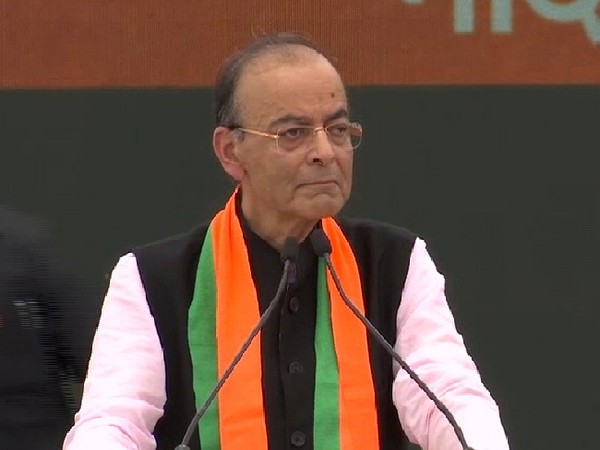New Delhi: Union Finance Minister Nirmala Sitharaman has rightly given top priority to infrastructure in the Union Budget for 2019-20 which will generate employment, attract investment and enable India to be the fastest growing major economy in the world, her predecessor Arun Jaitley said on Saturday.
“The Finance Minister has rightly given top priority to infrastructure. This priority is self-evident in the fact that the rural roads programme connecting every village with a motorable road is nearing completion. National highways are moving at a pace faster than ever before. Adequate amount of allocations have been made in the Budget for this,” Jaitley said in his blog.
While presenting the Union Budget in the Lok Sabha on Friday, Sitharaman said that the government will spend Rs 100 lakh crore on infrastructure upgradation over the next five years.
Jaitley said massive infrastructure creation also has the ability to generate employment and attract investment. So does a boost to the construction and real estate sector.
“India will continue to be the fastest growing major economy in the world. In the last two to three-quarters, growth has seen a moderation,” he added.
Jaitley said the railways is one of the top priorities of the government. Besides faster trains, modernised coaches, additional railway safety measures, very soon India will witness the modernisation of its railway stations similar to what today has happened to the airports.
“Increase in port capacity, further development of inland water transportation and expanding the aviation sector to the remotest corner of the country is the roadmap which the Finance Minister has presented. This will be the India of 2024,” he said.
Saying that modernisation of cities with all-weather roads, an effective metro system, better urban roads are being given an impetus, Jaitley said: “A major tax incentive has been given to those who borrow to buy affordable houses. This move will not merely help the system to utilise the unsold stock of affordable houses but will also be instrumental in injecting liquidity into the real estate market.”
The direction of reforms in the banking and financial sector has been maintained. Consolidation of public sector banks is being undertaken so as to have fewer but mega and financially strong banks. A sizeable allocation has been made for the recapitalisation of banks so that their capacity to lend for growth improves.
“The Budget contains concrete proposals about support to the NBFCs whose liquidity, for the last several months, was under strain and had reduced the purchasing power of the consumer. The sectors most affected by this were real estate, automobiles, and the MSMEs,” said Jaitley.
While the GST reforms are being carried out, a lot of simplification for direct tax assesses has been proposed.
Jaitley said besides affordable housing, electric vehicles and start-ups are the sectors on which the Budget places an adequate emphasis.
In the last two years, he said, when the global crude oil prices hardened, duties had been cut by the Central government on at least two occasions in a major way.
“It is the softening of crude oil prices which persuaded the government to raise excise duty on petrol and diesel marginally so that this money could be transferred to a special fund meant for infrastructure creation, particularly for the national highways and the rural roads programme,” Jaitley said.
[source_without_link]ANI[/source_without_link]

